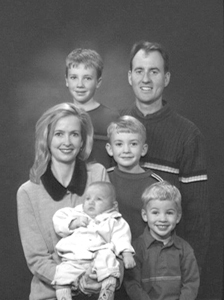ANOTHER VIEW
 Living in the Middle East gives me time to reflect on the history of our Western civilization from a point of view looking back to the very beginning of things. For example, during a recent trip across Turkey our family stopped by the ruins of the ancient city of Pergamum touring one of the first full-service “health” centers. Of course, the medical care they offered came with a hearty dose of pagan Greek rituals, like walking through the tunnel of the Spring of Life hoping to have a dream that would reveal the cause of the sickness. Nevertheless, the symbol of the temple, two intertwined serpents etched firmly on a marble pillar, remains to this day the symbol of medical science. Everything has a root somewhere.
Living in the Middle East gives me time to reflect on the history of our Western civilization from a point of view looking back to the very beginning of things. For example, during a recent trip across Turkey our family stopped by the ruins of the ancient city of Pergamum touring one of the first full-service “health” centers. Of course, the medical care they offered came with a hearty dose of pagan Greek rituals, like walking through the tunnel of the Spring of Life hoping to have a dream that would reveal the cause of the sickness. Nevertheless, the symbol of the temple, two intertwined serpents etched firmly on a marble pillar, remains to this day the symbol of medical science. Everything has a root somewhere.
In Turkey one can hardly escape the presence of ancient domes, frescos, sacred caverns, Hebrew, Greek, or Arabic scriptures etched in stone, and underground cities that give silent testimony to this region’s key role in the history of the beliefs of over three billion monotheistic people. Instead of having played its part in the history of humanity then quietly graduating to a respectable retirement, the Middle East remains a cauldron of conflicting ideas about how the world should look.
Occasionally people blame religion for war, implying that a world without religion would be a happier and safer place. (Remember John Lennon’s song “Imagine?”) This notion completely fails to consider the forces that worked in the First and Second World War and the subsequent Cold War. Even before WWI liberal German theologians had done much to marginalize churches in German society. By Hitler’s time, the Nazis marked devout Christians, Jews, and small sects as enemies of the state. If anything, Fascism and Communism sought to produce the world that Lennon tried to imagine, one with a dead God.
In the wake of their failure, humanity seems at least as religious as ever. The present conflict between the Israelis and the Palestinians (with clearly identifiable connections with their respective religious convictions) makes us reevaluate the nature of cultures, religions, and even individuals, including ourselves. If you were to ask an Israeli and a Palestinian if they want peace, each would probably say yes, but they would likely differ in what kind of peace they want and how to reach it. Is there any remedy for the human condition in light of our stubborn tendency to violent conflict? We will consider this question further in the next article.
- Celebrating 20 Years Of Community At The Stand - April 12, 2024
- First Positive Case Of Chronic Wasting Disease In Indiana - April 12, 2024
- Southwest Allen County Schools Embark On Major Tree Plantings - April 12, 2024


